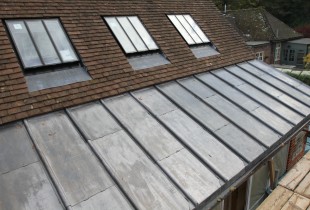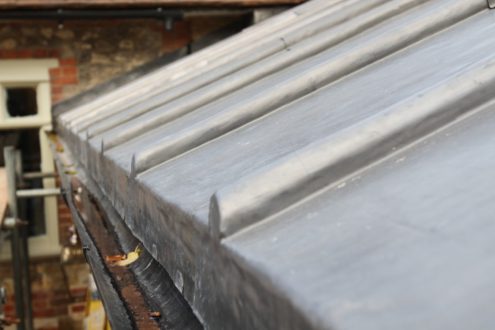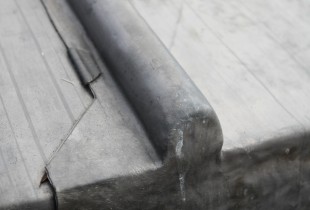Which roof to choose?
One of the first things you need to consider on a development project is the way that you want to roof your property. Not only does it keep your home watertight but it is an exciting style choice to make about your home. It may well be something that your local planning authority have control of, but if not here are a few materials for you to consider:
Slate roof tile
In London, the most commonly used product for a sloped roof is the slate roof tile. It is a high quality and long lasting product that gives a beautiful finish to any home. Slate roofs can be relied on to last about 100 years with little to no maintenance which means it also an environmentally friendly product. The quality of workmanship is the key to its appearance and longevity and unfortunately this does bump up the price. Slate is a fragile material and so skilled contractors should be employed to lay it. We would always recommend that you have a frank conversation when hiring a contractor to ensure they are experienced in using this material.
Fiberglass
Fiberglass is a type of reinforced plastic and is a very popular choise. It is relatively inexpensive, instillation is straight forward and it can be laid with a very low pitch. It is put down as one continuous form with no joints so it is very waterproof! It is lightweight and easy to repair with a 20-25 year warranty. This is a material that will not fade or change over the years which can either be a positive or a negative depending on whether you want your roof to mature into your property or not.
Bitumen
Bitumen is a type of asphalt product that is predominantly used for flat roofs to prevent leaks and move water off the roof. Like Fiberglass instillation is straight forward. It is usually reinforced with fiberglass or polyester fiber matting in order to increase durability and strength. A high perfomance bitumen roof will last about 15-20 years, where as basic brands tend to last only around 10. It is worth paying slightly more for a higher quality product.
Lead
Lead has been used in construction for hundreds of years. There are many examples around the country of lead installations continuing to function as well today as the day it was installed all those years ago; due to lead’s durability and reliability over time. Lead is also more carbon friendly with the lowest carbon footprint of all hard metals and is up to 100% recyclable. When you factor in the long term, lead is more economical than any man-made alternative, it has been known to last up to 500 years with very little maitenence and it can be installed today with a 50 year warranty by a lead sheet association member. We recently installed a traditional sheet lead roof in one of our projects:




